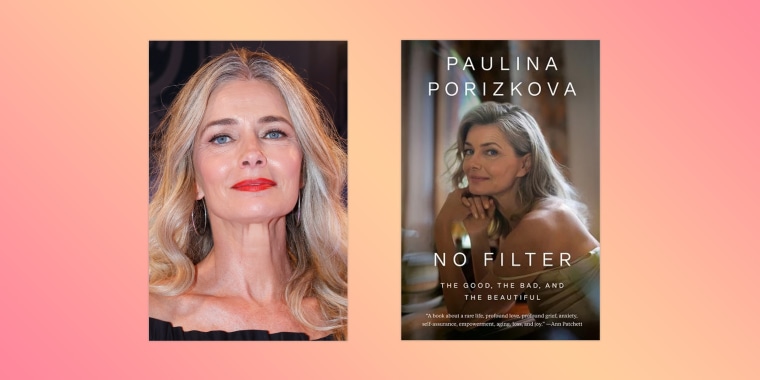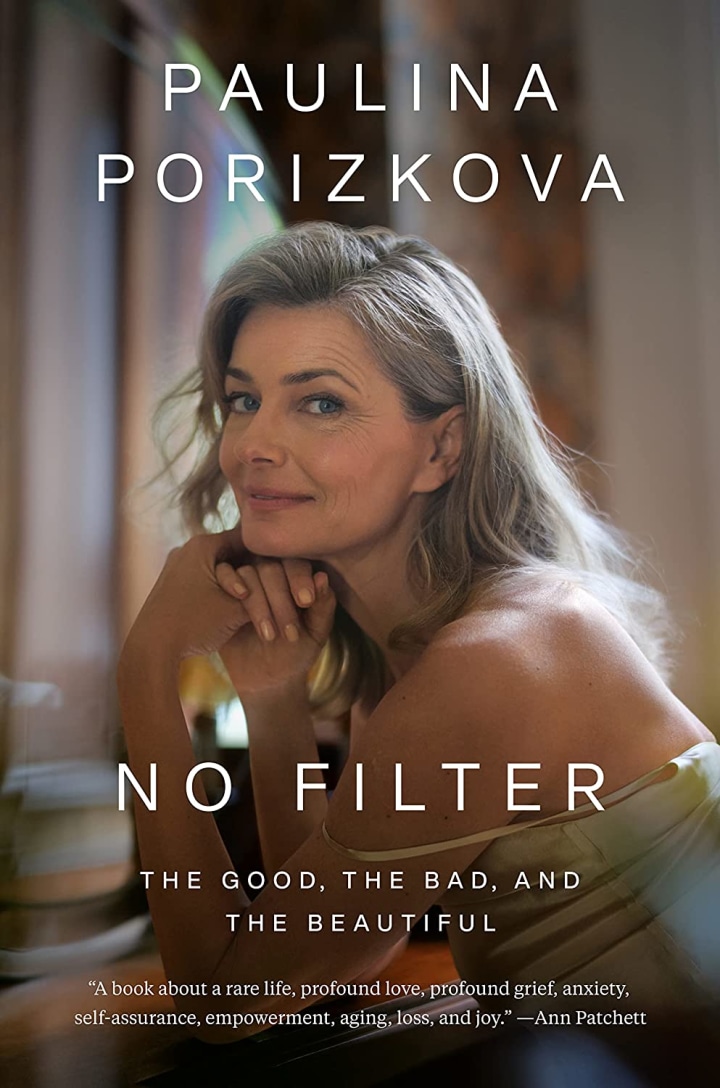Paulina Porizkova was 10 years old when she had her first panic attack.
“The air had suddenly become too thick for me to breathe. It was like trying to suck in oxygen through a straw,” the former model said of her experience in the new memoir, “No Filter: The Good, the Bad, and the Beautiful.”
“My heart kept punching my ribs so hard it was as though it were trying to escape,” Porizkova wrote, saying she sat in her bathroom, head resting on the toilet, and “waited to die.”
The book is Porizkova's nonfiction debut (she published the fiction novel "A Model Summer" in 2007) and contains a series of essays chronicling everything from her childhood in Czechoslovakia and years as a supermodel, to her marriage to Cars rocker Ric Ocasek and lifelong struggle with debilitating anxiety.
Though her first panic attack occurred when she was a child, it wasn’t until her early 20s that Porizkova was officially diagnosed with panic disorder. And while the attacks came and went throughout her life and career as one of the highest paid models in the world, they became debilitating in her 40s.
“There were times in my life where it would actively prevent me from living, from experiencing things, because I was so bogged down with anxiety that I didn’t dare leave the house or I didn’t dare to get on public transportation,” Porizkova told TODAY in a phone interview.
"This is an anxiety that sits on your shoulder at all times and it weighs you down."
A difficult childhood
Born in Czechoslovakia (in a town that is now the Czech Republic), Porizkova’s parents fled to Sweden after the Soviets invaded the country in 1968, leaving their 3-year-old behind to live with "Babi," her grandmother.
When it came time to retrieve to her, the border between the countries had been closed and her parents' fight to reclaim her made national headlines, turning Porizkova into what she wrote was a “political pawn between the West and the East.”
Five years passed before she was reunited with her parents. But after being apart for so long, they had become virtual strangers to her. Not only did Porizkova leave her grandmother and the only home she'd ever known, soon after arriving in Sweden, her parents divorced.
"I longed for my grandmother," Porizkova wrote. "She was back in Czechoslovakia, unable to leave while I was unable to return."
That's when the panic attacks began. And once they started, they never stopped.
"It prevents you from living," Porizkova told TODAY. "Because living is all about moving, moving outside yourself, connecting to others. You can't do that if you're going to sit and guard yourself."
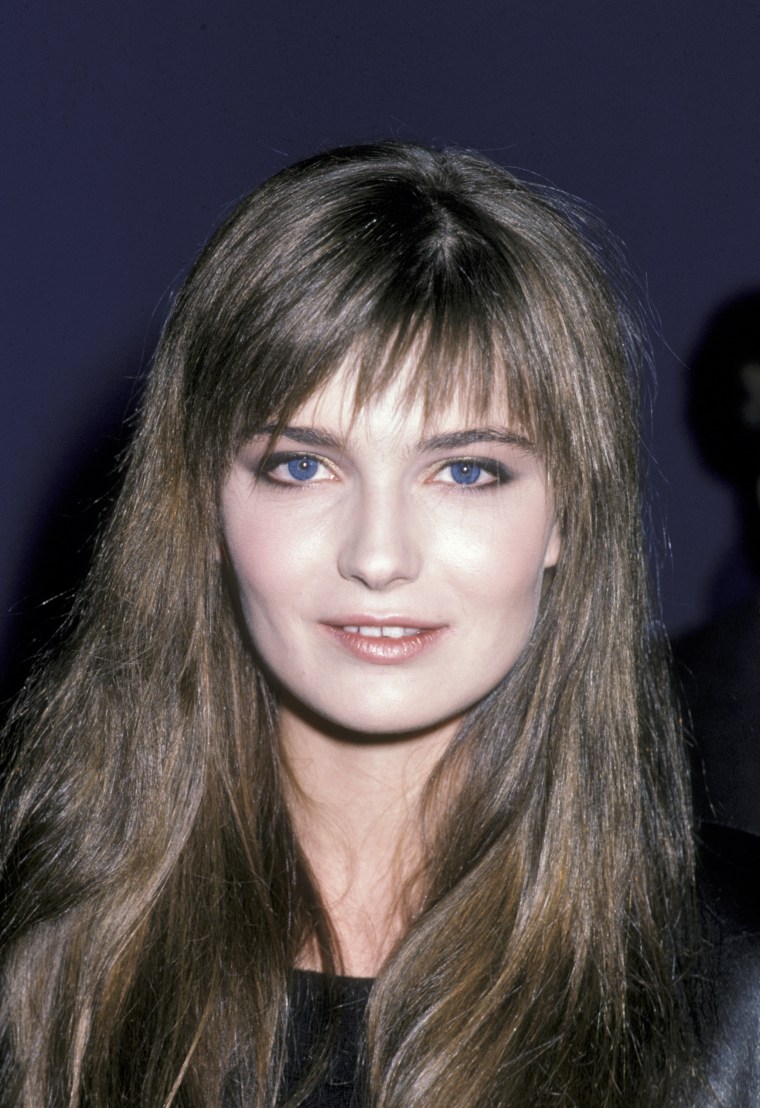
Fame, marriage and loss
Porizkova moved to Paris when she was 15 to pursue a career in modeling and within two years appeared on the pages of the coveted "Sports Illustrated" Swimsuit Edition, establishing her as a top model in the business.
While filming a music video for the '80s band The Cars, she met Ric Ocasek, frontman for the rock group. The pair fell in love, marrying in 1989.
The couple stayed together for more than 35 years and had two sons together before separating in 2018. Though they were in the process of getting divorced, Porizkova and Ocasek remained amicable, sharing an apartment in New York City.
In 2019, Ocasek underwent surgery for cancer and was recuperating in their home when he died unexpectedly at 75. Porizkova was devastated.
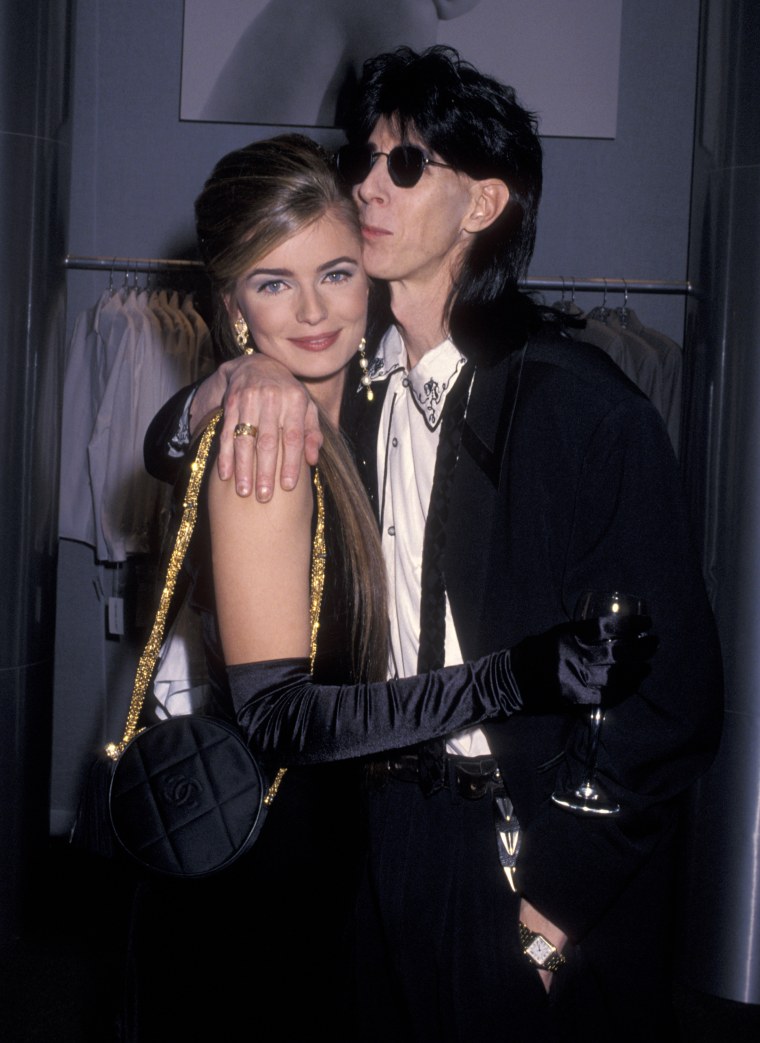
"The world around me ceased to exist as I knew it," she wrote in the book and said that she "rocked and mooed" trying to hold herself together.
Once Ocasek's will was read, she was further shocked to learn he had cut her out of it citing, "I will make no provisions for my wife because she abandoned me."
"After my husband's death, I found myself not only having lost probably the most important person in my life, but also very quickly plunged into financial issues," Porizkova told TODAY. "I had to sell my house immediately because I didn't have the money to hold onto it."
Shattered on all fronts, she found herself unexpectedly starting over at 53 and grappling with the "complicated grief" of having been betrayed on top of losing Ocasek.
"(It was) these physical losses that accompanied the emotional loss of him being gone. And then betrayal trauma was that the person I loved, wanted me to be in that situation. Like, that was his intention," Porizkova said to TODAY.
In the three years since Ocasek's death, Porizkova said that she hasn't necessarily made peace with it, but therapy has helped her find forgiveness, even if she still struggles with "major trust issues."
"I think I was able to let go and forgive my husband, so there is some sense of people in being able to forgive him," she said.
'White-knuckling' leads to courage
In her ongoing struggle to manage her anxiety, one thing that Porizkova said doesn't make her feel anxious is being in the nude. She's been photographed nude multiple times since turning 50.
"Being nude, I feel free," she wrote in the memoir. "My true vulnerability lives in the things no one can ever see. The symptoms of severe anxiety are internal."
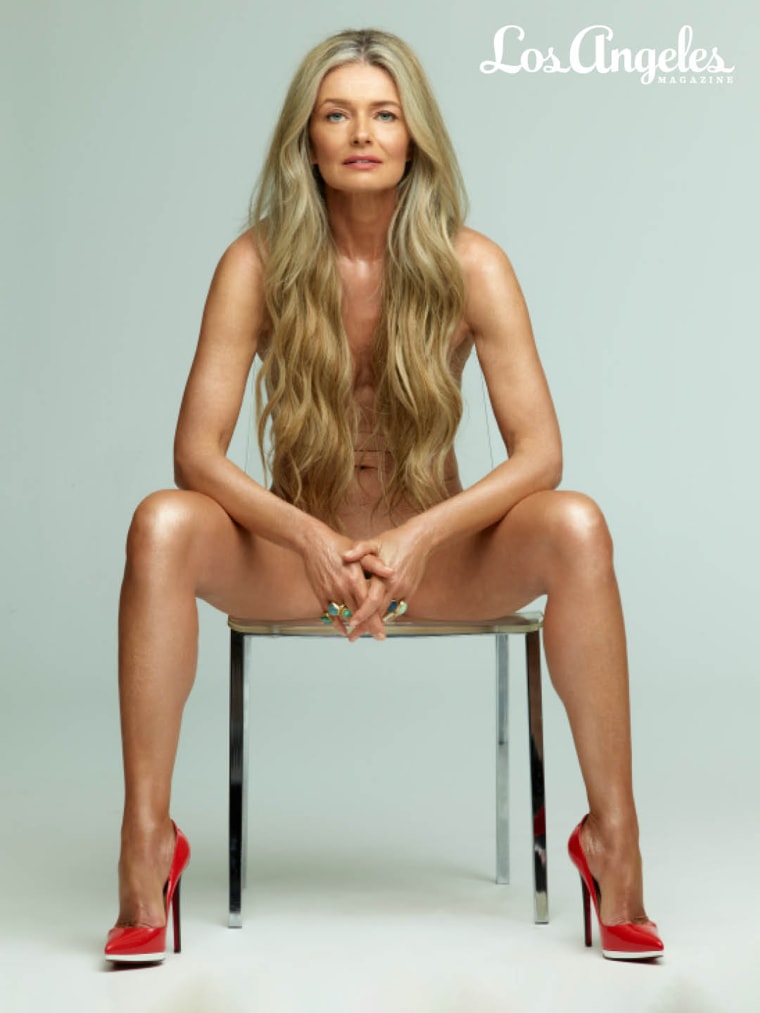
At one point, when her anxiety became so crippling, Porizkova said she struggled to leave the house and everyday things, like riding the subway, became a challenge.
"I thought of all possible scenarios. The train stopping, the lights going out, the conductor announcing something ominous over the PA system," she wrote in "No Filter."
Porizkova told TODAY that she went on medication to help curb her symptoms after the anxiety became debilitating.
"It actually did help and it allowed me to see what a world with no anxiety would be, " she said. "It was like taking a vacation from your anxiety."
But even though the medication provided some relief, Porizkova said it numbed her and she made the decision to stop taking it and "ride with it and white-knuckle" her anxiety instead.
"I do believe that white-knuckling things and facing your fears is what builds courage," she said. For Porizkova, part of facing her fears is being prepared for everything.
"I will always be the best prepared person. I always joke that if you're in a plane crash, you want to sit next to me, because I'm the one who has all the exits down," she said. "I've gone through every scenario in my head."
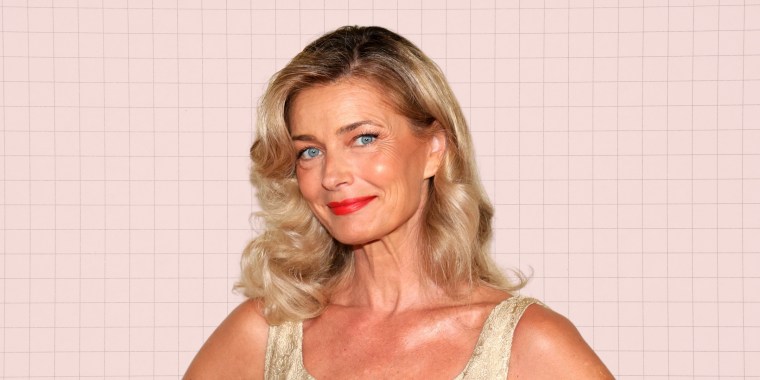
Surprisingly, when things do go wrong, Porizkova said that instead of freaking out, she's calm because something going wrong is exactly what she expects will happen.
"This has happened and now I will proceed, so there's probably some good stuff about anxiety," she said and explained that despite common wisdom, which says if you're always waiting for the proverbial shoe to drop, you can't be happy, she feels the complete opposite.
"By nature, I'm a very happy person because I'm full of gratitude for the all the lovely moments. When a lovely moment happens, I embrace it because I understand the value of it – I know how precious it is," she told TODAY.
"It doesn't happen every day, but when it happens I embrace it and I immerse myself fully in it," Porizkova said. "So, I feel like I actually lead a very joyful, a very anxious life."
